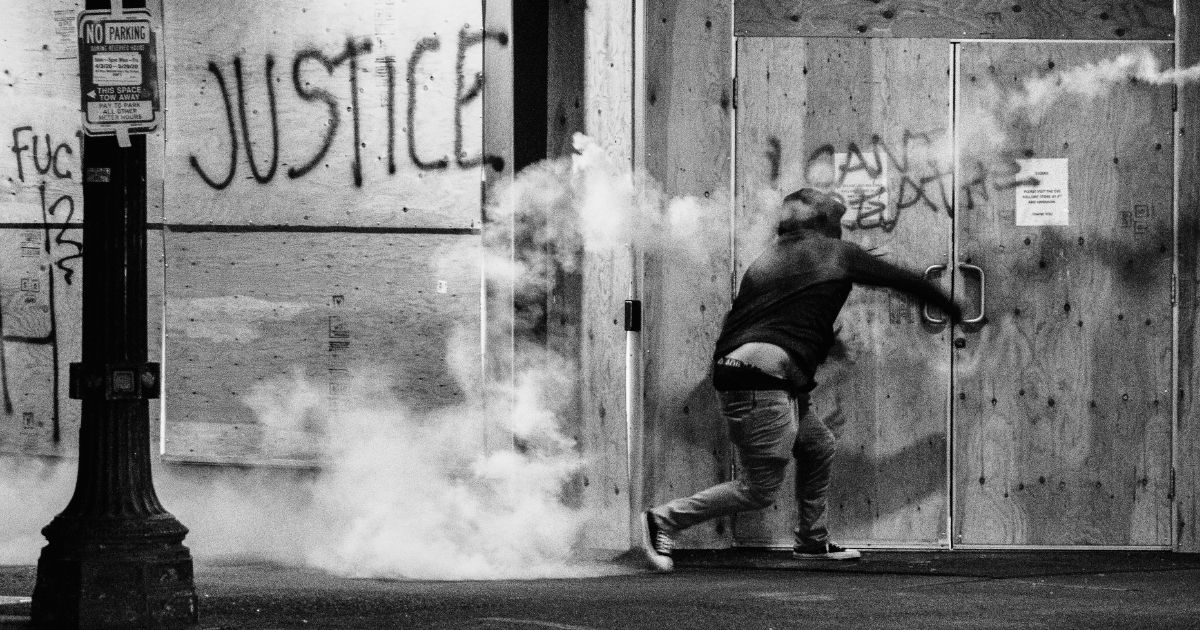Hundreds of thousands of workers have participated in walkouts in France on Thursday, following a call to action by trade unions for a day of protests to counter budget cuts.
Organisers estimated one million demonstrators on the streets, while the interior ministry estimated 500,000, with 80,000 police officers deployed.
There were clashes reported in the French cities of Lyon and Nantes, and in Paris, there were minor skirmishes between protesters and police.
Police in riot gear deployed tear gas and shields to scatter crowds in the city centre after protesters broke a handful of businesses and buildings.
The attacks follow less than a week after a close ally of President Emmanuel Macron, Sébastien Lecornu, became prime minister after the fall of François Bayrou’s government.
Public transportation was severely affected on Thursday, with numerous metro lines in Paris said to be closed, and roads and streets in big cities in France were blocked by protesters.
Pupils congregated at school and university entrances in the capital and around the country, blocking doors and chanting slogans. Well over a third of teachers stayed away.
Pharmacists were also following strike action in large numbers, with 98% of pharmacies due to remain shut.
Over 300 individuals were arrested across France, according to the interior ministry.
Unions have demanded increased expenditure on public services, increased taxes on the rich, and for the budget reductions planned by the brief Bayrou government to be scrapped.
Cyrielle, a 36-year-old computer worker, explained to the BBC she was joining in the strike because “Macron’s economic and social policies don’t suit me, nor did Bayrou’s budget”. She was among a closely-policed mass demonstration in central Paris.
“I would prefer more funding for public services and culture. Maybe a proportion of those who have vast fortunes could give a bit more,” she added, saying that if the new government “tilted more to the left, that would be the start of a solution.”
Sophie Binet, head of one of France’s largest trade union organizations, the General Confederation of Labour (CGT), added: “We must be out in force, that’s how we build ourselves up to carry on fighting. To compel the government and employers to stop policies that only benefit the wealthiest.”
“We will be unyielding and tenacious,” threatened Bruno Retailleau, the outgoing interior minister, who said he had ordered police to arrest people “as soon as there is the slightest mishap.”
Jean-Luc Mélenchon, head of the hard-left party France Unbowed (LFI), called upon participants to the strike to remain “disciplined.”
“Any act of violence would only benefit one person – Mr Retailleau,” he said.
Before the protests, Paris prosecutor Laurent Nunez said he was concerned the demos would be “hijacked” by the far-left and advised city centre shops to shut for the day.
Thursday’s strikes follow up to 200,000 people protesting last week in demonstrations organized by the amateur grassroots Bloquons Tout (Let’s Block Everything) movement, which had some impact around France.
Bayrou’s unpopular budget plan – to reduce France’s large public debt with €44bn (£38bn) of cuts – led him to be defeated in a confidence vote in the National Assembly last week when parties from all sides of the political divide came together to bring him down.
New Prime Minister Sébastien Lecornu, still to build a ministerial team, has not completely ruled out the cuts and has engaged in discussions with opposition parties in a bid to find a compromise on the budget.
Lecornu is in a precarious position. As with his two predecessors, Bayrou and Michel Barnier, he is confronted by a hung parliament divided into three blocs with strongly opposing political inclinations, making it hard to produce a budget acceptable to the majority of MPs.
But France is also staring down the barrel of runaway public debt equivalent to nearly €50,000 per French citizen.
Barnier and Bayrou were also toppled due to their planned budgets, which would have meant drastic cuts, with politicians on the left instead making demands for rises in taxes.
“Of course, we’d prefer more stability in government, but whether it’s Lecornu or whoever, we want workers to be really taken into account,” trade unionist Alexandre Dubois told the BBC.
“And we have to turn away from this short-term economic logic.”




